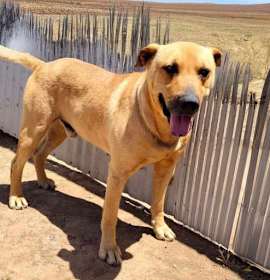You can adopt a Black Mouth Cur at a much lower cost than buying one from a breeder. The cost to adopt a Black Mouth Cur can range from $50 to $300 to cover the expenses of caring for your new bestie before adoption. Adoption fees typically include a basic exam, preventatives, heartworm testing and treatment, vaccines, spay/neuter, and microchipping. In contrast, buying Black Mouth Curs from breeders can be expensive and doesn’t provide the joy of rescuing. Depending on their breeding, they can cost $450 to $1,500.
Adopt A Black Mouth Cur
12 available Black Mouth Curs near you

CHRIS
Black Mouth Cur
Male, 10 mos
Van Nuys, CA

Mozzy
Black Mouth Cur Black Mouth Cur
Female, 2 yrs
Glendale, CA
Good with dogs
Good with cats
House-trained
Spayed or Neutered
Shots are up-to-date

Balu
Black Mouth Cur Carolina Dog
Male, young
Los Angeles, CA
Good with dogs
Good with cats
Spayed or Neutered

Cooper
Black Mouth Cur Carolina Dog
Male, adult
Los Angeles, CA
Good with dogs
House-trained
Spayed or Neutered

Scooby
Black Mouth Cur Carolina Dog
Male, adult
Los Angeles, CA
Good with dogs
Good with cats
House-trained
Spayed or Neutered

Galo
Black Mouth Cur Terrier (Unknown Type, Medium)
Female, young
Los Angeles, CA
Good with dogs
House-trained
Spayed or Neutered

Kari
Black Mouth Cur Carolina Dog
Female, young
Los Angeles, CA
Good with dogs
Good with cats
House-trained
Spayed or Neutered
Shots are up-to-date

Tina
Black Mouth Cur Staffordshire Bull Terrier
Female, adult
Los Angeles, CA
Good with dogs
Good with cats
House-trained
Spayed or Neutered

Angie
Black Mouth Cur Carolina Dog
Female, young
Los Angeles, CA
Good with dogs
Spayed or Neutered
Shots are up-to-date

CASSY
Black Mouth Cur
Female, 1 yr
California, CA
Good with dogs
House-trained
Spayed or Neutered
Shots are up-to-date

MIDNIGHT
Black Mouth Cur Labrador Retriever
Male, 3 yrs
Castaic, CA

SHADOW
Black Mouth Cur Labrador Retriever
Female, 3 yrs
Castaic, CA
Search for Black Mouth Cur puppies and dogs
Find adoptable Black Mouth Cur by Beverly Hills, CA
Animal shelters near Beverly Hills, CA
Adopting a Black Mouth Cur
Frequently asked questions about acquiring an Black Mouth Cur - the pros and cons of adopting versus going through a breeder, and associated costs.
The easiest way to adopt a Black Mouth Cur would be through a rescue specializing in Black Mouth Curs or through shelters located in the southern U.S. A great place to start is through a breed search on Adopt a Pet. The search will show you all the available Black Mouth Curs in your area.



